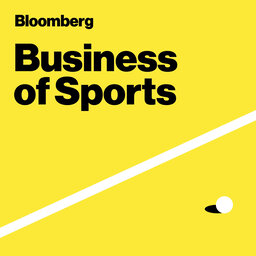Future of Golf with Jim Furyk, Brain Health with NFL Legend Mike Singletary
This week on the podcast, hosts Michael Barr, Scarlet Fu and Damian Sassower speak with PGA Tour pro golfer and 2023 Presidents Cup US Captain Jim Furyk on becoming the captain, the current popularity of golf, and the future stars of golf.
Plus, NFL Hall of Fame Linebacker and former San Francisco 49ers head coach Mike Singletary joins the program to discuss the importance of brain health, whether the league is doing enough to protect player head safety, and what he expects this upcoming NFL season.
In 1 playlist(s)
Bloomberg Business of Sports
Michael Barr, Vanessa Perdomo and Damian Sassower follow the money in the world of sports, taking li…Social links
Follow podcast
Recent clips

Warriors Said To Be Valued at $11 Billion; Next 3 Founder Carolyn Tisch Blodgett
38:48

KKR To Buy Sports Investor Arctos; Robinhood's Prediction Markets
38:36

Brooks Koepka Quits LIV Golf, US Sports Global Expansion
38:05
 Bloomberg Business of Sports
Bloomberg Business of Sports